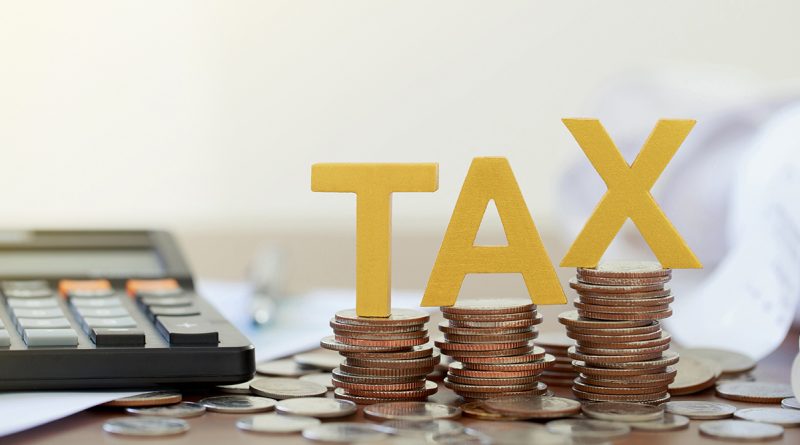Highest Numbers Of Firms Fined For Tax Misinformation
The number of companies penalized for tax misinformation has hit a record this time. HMRC has fined many firms for purposely concealing their corporation tax affairs. Moreover, the number of such companies didn’t only increase last year but has peaked at its highest level in four years.
According to a freedom of information request response from HMRC, the taxman fined 62 companies last year. These are the companies that have intentionally provided inaccurate information to reduce the amount of corporation tax they owe. It’s gone up by 35 per cent from 46 the year before.
But, what is this corporate tax in the UK?
It’s a levy on businesses’ profits that the UK limited corporations and several other organizations need to pay. The corporate tax depends on how much money a company produces each year in earnings. It’s important to highlight that all gains are subject to taxation. However, you can lower your tax burden by deducting some expenses. Besides, you can take advantage of certain concessions.
What falls under the purview of corporation tax for a limited company:
- Trading gains – money made by conducting business
- Investments
- Selling assets like shares, land, property, or equipment for a profit
Who is liable for corporate tax?
All UK limited corporations should pay corporation tax. However, sole traders and partnerships don’t have to pay it. Rather, they must file tax returns and deduct income taxes from their profits.
Yet, there are some organizations that might not be incorporated as limited companies, still they may need to pay corporation tax. These consist of:
- Housing cooperatives
- Organizational associations
- Clubs, and Societies
- Co-operatives
What is the UK’s corporate tax rate?
In the UK, the standard rate of corporation tax is 19 per cent, which applies to all firm profits. The rate will stay at this level by next year. But, it’ll change from April 2023 as per the recent budget announcement.
Changes in the corporate tax rate starting in April 2023
The government announced upcoming adjustments to the corporation tax rate in the Budget 2021.
As per the announcement, if your taxable profits exceed £250,000 as of April 2023, you’ll be subject to a 25% upper limit. Meanwhile, a lower limit rate of 19 per cent will apply if your profits are £50,000 or less. On the other hand, you will effectively pay a marginal rate of 26.5% if your profits fall between the lower and upper thresholds. However, you will also receive marginal relief.
How much fine do the firms have to pay?
Despite an increase in fine volume, HMRC is decreasing the amount of money it demands from firms for concealing their tax problems.
Over the past year, the average corporation tax penalty assessed by the taxman decreased by 72%, from £17,454 to £4,845.
Last year, there were 100 corporation tax fines overall, up from 86. Meanwhile, the HMRC has reduced the fines totaling £1.5 million to £485,000.
The assessment of penalties for tax misinformation
The severity of a company’s incorrectly filed tax return determines the size of a corporation tax fine. Moreover, HMRC can penalize a company up to 70% of the unpaid tax if it supplies intentionally false information.
If HMRC finds the tax return error on its own, it may impose larger penalties. On the other hand, companies that find the problem on their own and notify HMRC are subject to a reduced fine.
However, the amount of fines for the most severe instances of businesses reporting incorrect corporation tax information hasn’t been revealed. This is because according to HMRC, the statistics “can identify individual companies.”
According to experts, a decline in revenues brought on by the pandemic’s economic shock may have reduced the severity of fines imposed by HMRC.
As per Abigail McGregor, legal director at law firm Pinsent Masons, “lower profits in the pandemic era meaning the tax at stake and the penalties were both lower” may have caused the decline in fine values.
Besides, McGregor cautioned that the taxman is “particularly bent” on snatching up as much money as possible. And the reason behind that is the pressure on the UK’s public finances brought on by the government’s increase in spending in reaction to the COVID-19 problem.
Future changes in the corporate taxes
As we know the corporate tax is a levy on the revenue of corporations. The UK’s rate is now 19%. However, after former chancellor and potential Tory presidential candidate Rishi Sunak suggested an increase in the March 2021 budget, we can expect it to rise to 25%.
On the other hand, Liz Truss, his opponent in the battle, has vowed to stop the six percentage point increase. Her campaign chose not to respond. Meanwhile, a request for comment from Sunak’s campaign was not met with a timely response either.




